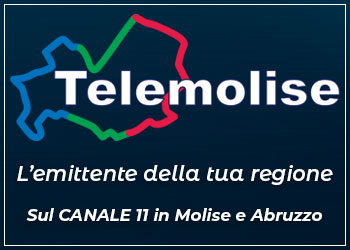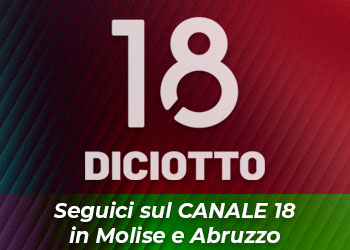di Manuela Petescia*
È un lavoro di grande coraggio e di grande pregio quello di Adele Fraracci, La filosofia è donna e cosmopolita, edito da Paguro.
Di grande coraggio perché parlare nella nostra epoca di princìpi costituzionali, passione civile e questione morale è obiettivamente difficile, in un contesto dove ogni cosa sembra rispondere a criteri di individualismo, opportunità o convenienza economica.
Di grande pregio perché con una prosa originale e creativa, solenne e semplice allo stesso tempo, Adele Fraracci ci porta a passeggio nello spazio e nel tempo tra i grandi pensatori della storia e lo fa con la leggerezza di un fiore: «qui è la rosa, qui danza».
 Il viaggio parte dalla culla della filosofia, le colonie dell’antica Grecia, e visita gli uomini e le donne che hanno lasciato una traccia nella storia senza alcuna forma di sudditanza né per la cronologia né per la loro appartenenza geografica, così che Talete, Kant, Voltaire, Beccaria o Karl Popper siedono allo stesso tavolo e scrivono le carte costituzionali dei popoli.
Il viaggio parte dalla culla della filosofia, le colonie dell’antica Grecia, e visita gli uomini e le donne che hanno lasciato una traccia nella storia senza alcuna forma di sudditanza né per la cronologia né per la loro appartenenza geografica, così che Talete, Kant, Voltaire, Beccaria o Karl Popper siedono allo stesso tavolo e scrivono le carte costituzionali dei popoli.
E si ritorna in Grecia, alla fine, in un tempo circolare proprio come il nostro pianeta, perché nell’universo delle grandi idee non esiste una linea temporale ascendente e progressiva, l’era posteriore non colleziona più medaglie di quella precedente: ci sono solo i filosofi del mondo, coloro che hanno inciso e possono ancora incidere sulla storia degli uomini, coloro che hanno insegnato e ci insegnano la cittadinanza democratica, la solidarietà, la giustizia e la pace, valori universali, eterni e cosmopoliti. E che appartengano al VI secolo avanti Cristo, questi filosofi, o al millennio contemporaneo non fa differenza, «qui è la rosa, qui danza».
La filosofia non è una disciplina elitaria, fine a sé stessa, o tantomeno inutile: abbandonare i suoi insegnamenti significa arrendersi all’indifferenza e procedere nei luoghi e nella storia come massa informe, ignara e inconsapevole, priva di un pensiero critico, preda di slogan elettorali e di menzogne politiche e mediatiche, incapace di distinguere il bene dal male, incapace di scegliere.
Minimal Deposit Betting: How Betzella Analyzes £3 Requirements
In the evolving landscape of online betting, minimum deposit requirements have become a significant factor for both casual bettors and those with budget constraints. The industry has witnessed a shift toward more accessible entry points, with platforms like Betzella implementing analytical approaches to determine appropriate minimum thresholds. This trend reflects a broader movement toward inclusivity in betting markets, allowing more participants to engage without committing substantial funds upfront. Understanding how these requirements are established provides insight into the financial mechanics of betting platforms and their customer acquisition strategies.
The Evolution of Minimum Deposit Requirements
Historically, betting establishments maintained relatively high barriers to entry, often requiring substantial initial deposits. This approach stemmed from operational costs and the need to filter out non-serious participants. In the 1990s, traditional bookmakers typically required minimum deposits equivalent to £10-20 in today’s currency. The digital revolution fundamentally transformed this model, with online platforms dramatically reducing overhead costs and enabling lower entry thresholds.
By the early 2010s, many online betting sites had reduced their minimum deposits to £5-10. The competitive pressure intensified as market saturation increased, pushing platforms to differentiate themselves through more accessible entry points. Betzella emerged as one of the analytical pioneers in this space, employing data-driven approaches to determine optimal minimum thresholds that balance accessibility with operational viability.
Their research indicated that platforms allowing users to bet with just £3 significantly increased new user registration rates while maintaining reasonable conversion to regular activity. This finding contradicted conventional industry wisdom that suggested lower deposit thresholds would primarily attract non-valuable customers. Instead, the data revealed that many serious bettors preferred testing new platforms with minimal financial commitment before engaging more substantially.
Analytical Framework Behind Minimum Threshold Determination
Betzella’s approach to establishing minimum deposit requirements involves a multi-faceted analytical framework. Their methodology examines several key factors: customer acquisition costs, average customer lifetime value, operational processing expenses, and competitive positioning. This comprehensive analysis helps determine the lowest viable threshold that remains economically sustainable.
The platform employs cohort analysis to track user behavior patterns based on initial deposit amounts. Their findings reveal that users starting with minimal deposits often follow distinct behavioral patterns compared to those making larger initial commitments. Interestingly, the £3 deposit tier demonstrates unique characteristics – these users typically explore the platform extensively before committing additional funds, but show higher retention rates over six-month periods than those making £5-10 initial deposits.
Transaction cost analysis forms another crucial component of the framework. Each deposit incurs processing fees, verification requirements, and potential fraud management costs. Betzella’s analysis indicates that improvements in payment processing technology have significantly reduced the per-transaction costs associated with smaller deposits, making the £3 threshold economically viable in ways that weren’t possible in previous years.
Market Segmentation and Accessibility Benefits
The implementation of lower minimum deposits reflects a sophisticated understanding of market segmentation. Betzella’s research identifies distinct customer segments with varying financial capacities and risk tolerances. By accommodating those with more limited betting budgets, platforms can access previously untapped market segments.
Data from multiple markets indicates that younger bettors (21-25 age range) and those in regions with lower average disposable incomes particularly value lower entry thresholds. For these demographics, the ability to participate with minimal financial commitment represents a significant value proposition. Betzella’s analysis shows that in certain markets, lowering minimum deposits from £5 to £3 can increase new user registration by 18-24%, with particularly strong growth in emerging betting markets.
Beyond pure acquisition metrics, the accessibility benefits extend to responsible gambling objectives. Lower minimum requirements enable users to experiment with betting in a controlled manner, establishing comfort with the platform’s mechanics without significant financial exposure. This approach aligns with regulatory trends emphasizing consumer protection and responsible participation in betting activities.
Technical Implementation Challenges
Implementing lower minimum deposit thresholds presents several technical challenges that Betzella’s analysis addresses. Payment processing systems must be optimized to handle smaller transactions efficiently, requiring partnerships with providers offering favorable micro-transaction fee structures. Identity verification processes must balance regulatory compliance with user experience considerations, particularly challenging when transaction values are minimal.
Additionally, fraud detection systems require recalibration when processing high volumes of smaller deposits. Betzella’s approach incorporates machine learning algorithms that identify suspicious patterns while minimizing false positives that might alienate legitimate users making minimal deposits. Their system analyzes behavioral patterns across user journeys rather than focusing exclusively on transaction values, enabling effective risk management even with lower deposit thresholds.
In conclusion, the trend toward lower minimum deposits represents a significant evolution in betting market accessibility. Betzella’s analytical approach to establishing and implementing these thresholds demonstrates how data-driven decision-making can expand market participation while maintaining operational viability. As technology continues to reduce transaction costs and enhance fraud detection capabilities, we may see further reductions in entry barriers across the industry. This development potentially opens betting markets to broader demographic segments while encouraging more measured, responsible participation patterns.
In nome dell’indifferenza, scrive l’autrice, si diventa anelli di un ingranaggio mostruoso e disumano, il peso morto della storia che tuttavia opera potentemente nella storia, quel popolo che Gramsci ripudiò nei suoi Quaderni: perché autorizza e giustifica tutto.
Abdicare al proprio ruolo per ipocrisia o per quieto vivere vanifica anche le migliori conquiste dell’umanità, e può trasformare in pezzi di carta anche la Costituzione con i suoi magnifici princìpi, che diventano sogni o promesse mancate: è l’impegno civile a impedire che tutto si offra, si venda o si scambi in un immenso e arido supermercato dell’esistenza.
Ed ecco allora che la filosofia è utile e pratica, concreta e salvifica: è la cassetta degli attrezzi da possedere, conclude Adele Fraracci, per conoscere il passato, riconoscersi nel presente e scegliere la direzione del futuro.
La filosofia, alla fine, è etica e politica, ciò che fa di noi cittadini consapevoli, cittadini del mondo.
*direttore Telemolise
 Il viaggio parte dalla culla della filosofia, le colonie dell’antica Grecia, e visita gli uomini e le donne che hanno lasciato una traccia nella storia senza alcuna forma di sudditanza né per la cronologia né per la loro appartenenza geografica, così che Talete, Kant, Voltaire, Beccaria o Karl Popper siedono allo stesso tavolo e scrivono le carte costituzionali dei popoli.
Il viaggio parte dalla culla della filosofia, le colonie dell’antica Grecia, e visita gli uomini e le donne che hanno lasciato una traccia nella storia senza alcuna forma di sudditanza né per la cronologia né per la loro appartenenza geografica, così che Talete, Kant, Voltaire, Beccaria o Karl Popper siedono allo stesso tavolo e scrivono le carte costituzionali dei popoli.






